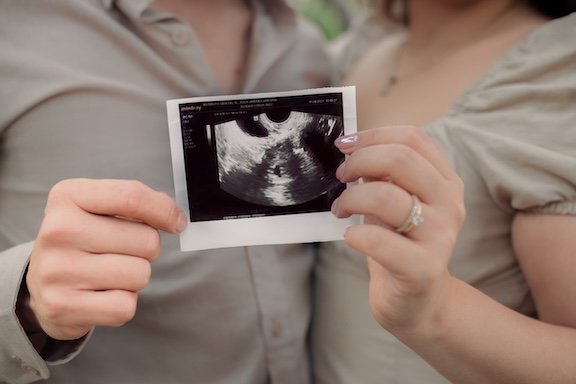Men's Grief After Miscarriage
Grief is an intensely personal and often profoundly painful experience, one that transcends gender boundaries. When miscarriage occurs, the impact is keenly felt not only by the person who was carrying the pregnancy but also by their partner.
While society often engages in discussions about women's experiences with miscarriage, it is crucial to recognize that men, too, grapple with their unique and less frequently acknowledged grief after miscarriage.
As a therapist who specializes in pregnancy loss therapy, I am committed to supporting this significant and often overlooked aspect of miscarriage grief. Here is guidance for men who are coping with miscarriage grief.
Recognizing Men's Grief After Miscarriage
Men's experience of grief in the aftermath of a miscarriage is frequently marked by silence. Social expectations that cast men as stoic and unyielding providers can create a substantial barrier to the open expression of their emotions.
The early stages of pregnancy can foster a powerful emotional connection within men as they envision their future as fathers. The shattering of these dreams, even at an early stage, can be profoundly devastating.
Men often grapple with the dual challenge of supporting their partner through the emotional and physical aspects of miscarriage while simultaneously managing their own grief. This balancing act can be emotionally taxing.
Common Emotions Experienced by Men
Sadness and Loss: In the wake of a miscarriage, men, like women, are engulfed by profound sadness and an overwhelming sense of loss. This anguish extends beyond the pregnancy itself and encompasses the shattered dreams of fatherhood.
Guilt and Helplessness: Feelings of guilt frequently plague men, as they contemplate whether there was anything they could have done differently to prevent the miscarriage. This sense of helplessness can further exacerbate their grief.
Isolation: Social expectations often leave men feeling isolated and unsupported in their grief. They may lack a network of friends or family who can empathize with their unique experiences.
Healthy Strategies for Coping with Grief
Open Communication: Open and honest communication is pivotal for men in navigating their grief. Sharing their feelings with their partners can foster a deeper emotional connection and enable couples to face this challenging period together.
Seeking Support: Men should never hesitate to seek support from friends, family, a therapist, or a support group. Speaking with someone who comprehends their pain can provide immeasurable solace.
Self-Care: Engaging in self-care activities such as exercise, meditation, or pursuing personal hobbies can be therapeutic for men as they work through their grief. These practices can help alleviate stress and foster emotional healing.
Understanding the Healing Process: Men should understand that the grieving process is not linear. Grief doesn't adhere to a predefined timeline, and it is natural to have both good and bad days during this journey.
Miscarriage is a painful and emotionally taxing experience that significantly affects both partners in a relationship. The often-underreported aspect of men's grief must be acknowledged and addressed.
By initiating open discussions on this subject and providing essential support and guidance, we can empower men to navigate their emotions and embark on a healing journey alongside their partners.
It is important to emphasize that seeking professional help is a valuable and courageous step in coping with grief, and there is no shame in asking for support when needed.
Get Support for Grief After Miscarriage
If you’re struggling with grief after a miscarriage, as a therapist specializing in pregnancy loss, I encourage you to reach out today and schedule a FREE 30-minute consultation.

